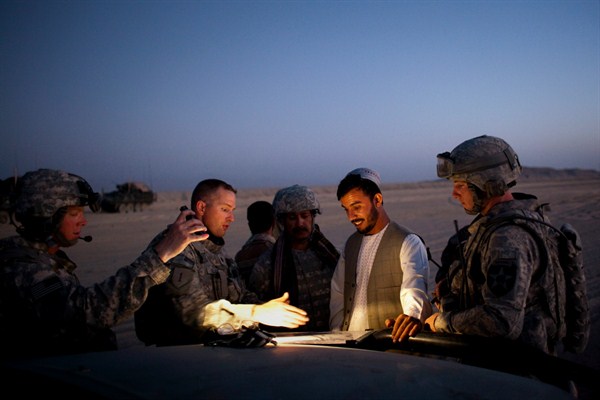In one fell swoop last Thursday, a gunman eliminated two of the most powerful officials in Afghanistan’s Kandahar province and critically injured a third. The Taliban quickly claimed credit for the attack, which killed Gen. Abdul Raziq, who held the title of provincial police commander but was in reality a prominent 39-year-old warlord in an official uniform.
In the past decade, the Taliban’s insurgency has grown to cover all corners of the country, swarming the non-Pashtun northern crescent and pushing to reclaim southern Afghanistan. The Taliban has made gains in Helmand and Uruzgan provinces, with advances more recently into neighboring Farah province. Yet Kandahar, where the Taliban movement was born in the 1990s, has still largely remained out of their reach. This situation is ultimately attributable to Raziq and his brutal but effective police force—a militia, really—which has not only held back the Taliban but has also secured U.S. supply lines into southern Afghanistan.
With the killing of Raziq and Kandahar’s intelligence chief, apparently by a rogue bodyguard, that could all change. Parliamentary elections in Kandahar, set for this past weekend, were immediately delayed a week. Roughly one-third of polling stations in the country were already set to be closed due to insecurity. The attack—in which the commander of U.S. forces in Afghanistan, Gen. Scott Miller, narrowly escaped unhurt—may also result in the postponement of the next round of talks between the Taliban and the United States. The two sides met for the second time this year earlier this month.

